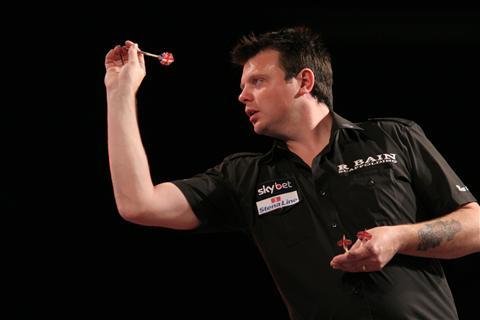
Mental agility is imperative to succeed at the top level. We’ve all crumbled at some point on the oche due to pressure or nerves, some more than others.
Players can thrive on the pressure or completely fold because their throw is hampered so much.
I caught up with former World Championship semi-finalist Chris Mason for his thoughts on it all.
One of the most common things heard about top professionals is that they can’t make the switch from the floor to the stage.
Mason explained: “most players can make the switch but can struggle with the longer format initially, as for televised matches; I feel that it is all to do with familiarity and once this is overcome most players adapt swiftly.”
The mind can play tricks on you and darts, being mainly an individual sport, gives the player time to think about the game in progress, in the past and the future.
“I feel fear, anxiety and all sorts, even what I’m having for my dinner tomorrow!” Mason said.
“On a personal note I was always wary of what version of me was going to show up.
“It does affect a player’s game but I really think it can be overcome. I’m a firm advocate of mind coaching and sport psychology.”
Having strong mental prowess could also have adverse effects in the same way that a weaker mind can destroy a player.
Over confidence can often cost players matches, underestimating opponents and having misplaced belief.
Darts is pretty much an instant success/failure sort of game as Mason states: “it has two phases to it, scoring, that most players are able to deal with, and closing out a leg.
“This is a different story; often players who hit early doubles will carry that confidence right through the match but if you miss that can also become infectious.”
“I feel fear, anxiety, and all sorts, even what I’m having for dinner tomorrow!”
Some may suggest that some sportsmen are born mentally weak and for this reason are unable to reach their maximum potential, despite all the hours of practice and ability they have shown.
How often do we hear about players who are tipped for the top but somehow don’t manage to achieve anything of note?
“The non-thinking players seem to be more spontaneous and don’t overthink any situations they find themselves in during matches,” Mason says. “It’s imperative to not overthink in sport.”
Nerves are often associated with performance on the oche and this needs to be utilised and turned into a positive for a player to get the best out of their game.
“I would suffer more in the last few hours pre-match but most of the nerves would go in the first few legs once I settled,” Mason says.
“More often than not I would say nerves are created by a lack of experience in the situation you find yourself in.
“I suffered without being able to get over the winning line; the more it continued the anxiety of this situation escalated.”
Nerves and mental issues are here to stay in the sport and it is part of the game being able to cope with it, so Chris: what’s the strangest thing that’s ever gone through your head during a match?
“(laughs) That’s too scary to publish!”

